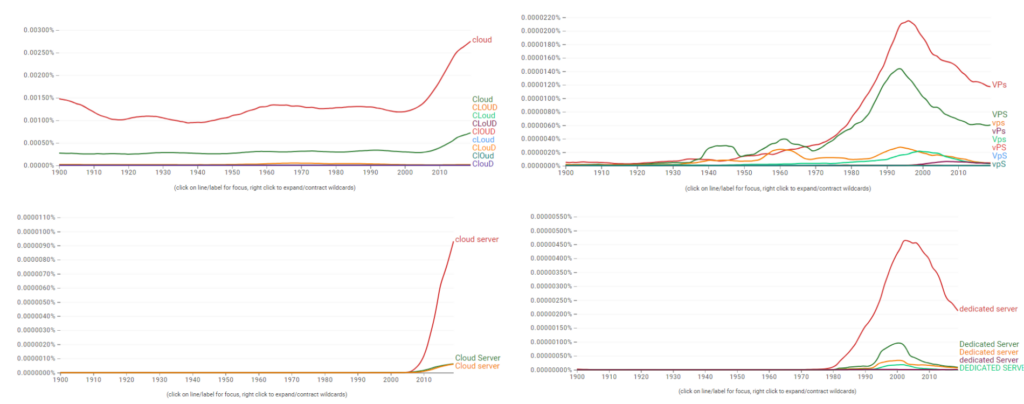Cloud web hosting: the marketing gimmick?
Cloud web hosting has emerged as a captivating concept in the technology industry, offering extraordinary dependability, redundancy, and effortless scalability. However, when we look closer, we can see that the term “cloud” is often used more for marketing purposes than as a truly innovative technology. To gain a better understanding of the topic, let’s explore the core of cloud web hosting and how it often compares to traditional hosting options.
The Real Purpose of the Cloud
The concept of the cloud was originally introduced to provide data failover and redundancy. The concept was to implement automatic data backup and mirroring across numerous servers and regions to guarantee data integrity and uninterrupted operations in the event of a failure in a specific location. This is the ideal scenario of a cloud infrastructure.
If we remove these features, we are essentially left with a remote server, similar to a physical server or a Virtual Private Server (VPS). The provider hosts the server instead of it being on your own premises, but it functions similarly to traditional hosting services that have been around for many years.
The Marketing Reality of Cloud Hosting

In numerous instances, the term “cloud hosting” used by providers simply refers to a basic remote server residing on their infrastructure. This established model has long been in practice, where hosting providers grant you server access devoid of the complexities of managing the underlying hardware. Now, what sets it apart from traditional hosting? The reality is that there isn’t a significant distinction unless your provider offers additional services such as redundancy, failover, or load-balancing.
A VPS by Another Name
When you buy a single server from a cloud provider without any extra services like load balancers or failover backups, your supposed cloud server is essentially a VPS. This implies that you lose the main advantage of the cloud – its capability to automatically manage server failures and allocate traffic. What’s left is a basic setup that doesn’t validate the premium that “cloud” typically demands.
Shared Hosting and the Cloud Myth
Many shared hosting providers now market their services as “cloud web hosting.” But if these providers use cPanel/WHM (with or without CloudLinux), it’s essentially a VPS or dedicated server behind the scenes. Current web hosting panels like cPanel/WHM are not designed for true cloud infrastructure, which includes automatic data synchronization across multiple virtual machines and regions to prevent failover and reduce latency.
The Illusion of Redundancy
Most web hosting control panels are single-server installations. While they may offer options to link multiple servers, this usually only synchronizes settings or configurations, not the actual site data. This means there’s no true data failover across servers. Providers often take regular backups of client data to mitigate data loss, a practice that has been standard in the industry for years.
The Reality of Cloud Web Hosting
The distinction between “cloud web hosting” and traditional web hosting is significant and lies in the underlying infrastructure that fully utilizes the capabilities of the cloud. Traditional web hosting lacks the essential features that make a true cloud environment so powerful, such as automated failover, load balancing, and data synchronization across multiple regions.
With my vast experience in the hosting industry, I have personally witnessed its evolution over time. As ethical providers, we prioritize transparency and ensure that our customers are not deceived. However, to remain competitive, like many others, we have had to adopt the “cloud” terminology. It is crucial, though, to recognize that without the additional services that define a true cloud environment, what you receive is simply a conventional VPS.
In the fast-paced digital world of today, traditional web hosting may just hold you back. It’s time to embrace cloud web hosting with its advanced capabilities. With this powerful tool, you’ll strengthen your online presence and empower your business to thrive in even the most competitive environment.
The Final Verdict
When evaluating cloud web hosting, it’s essential to look beyond the marketing hype. If you’re only using a single server without high availability, load balancing, or additional cloud services, you’re essentially using a plain VPS. The additional cloud services come at a cost, and unless you’re leveraging these, calling it “cloud” hosting is misleading.
In conclusion, while the term “cloud web hosting” may sound modern and innovative, it often doesn’t differ significantly from traditional hosting models unless true cloud features are utilized. Understanding this can help you make more informed decisions and avoid falling for marketing gimmicks.



